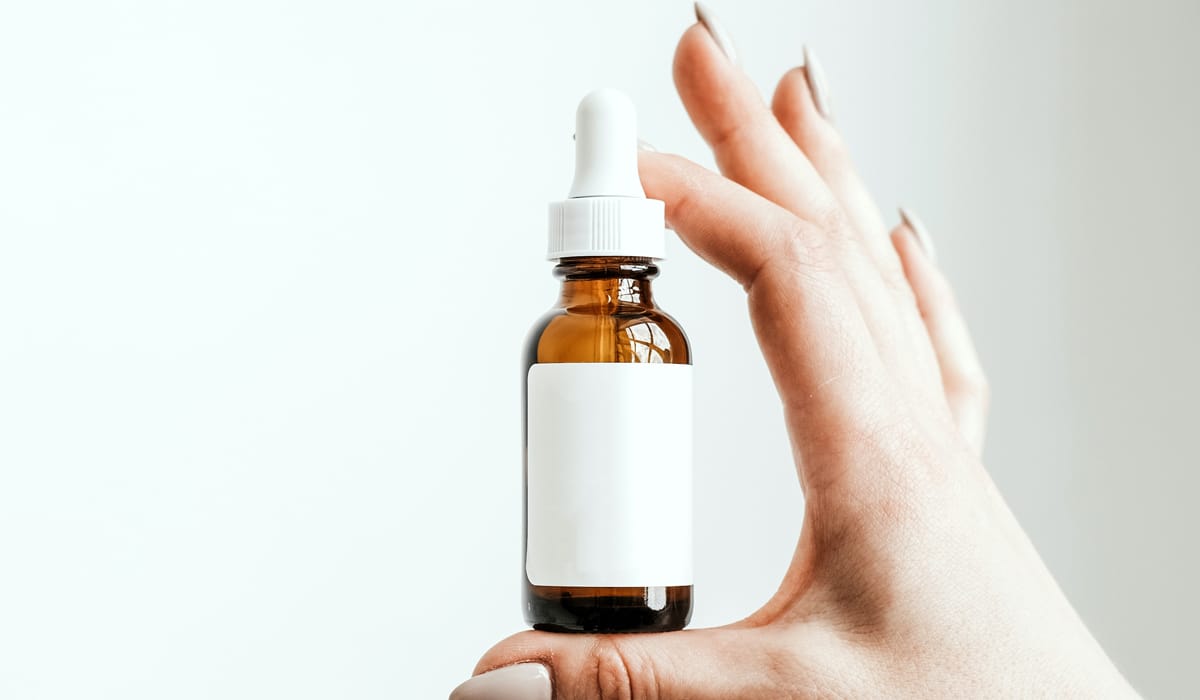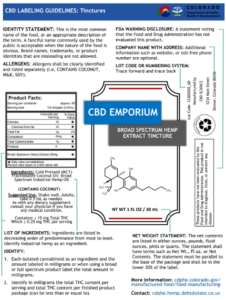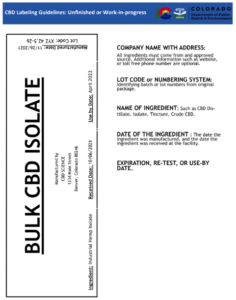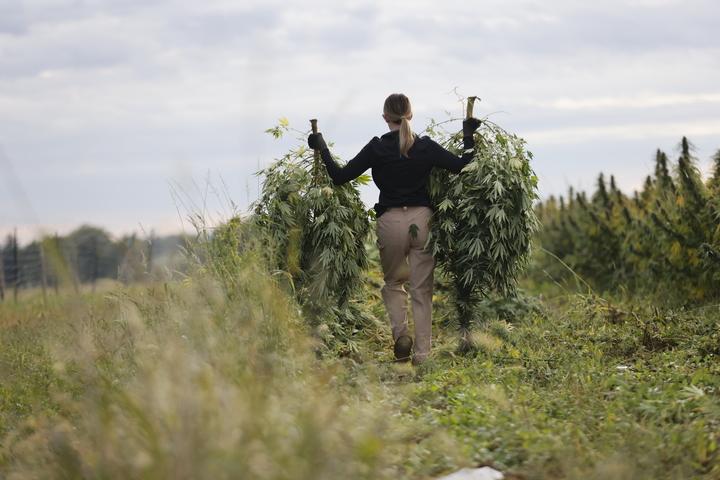
CDPHE Label requirements
2/22/2023
Compliance & Regulation
Hemp is a versatile plant that has been used for centuries in a wide range of products, from clothing and textiles to food and personal care items. With the growing popularity of hemp-based products, it’s more important than ever to ensure that they are properly labeled and accurately reflect their contents. Recently, following robust updates to hemp testing requirements, the Colorado Department of Health (CDPHE) has updated its guidelines for labeling hemp products, and it’s crucial for brands, distributors, and manufacturers to understand these changes to comply with the state’s regulations.
Overview of Colorado’s Updated Guidelines:
The Colorado Department of Health has made several changes to its guidelines for labeling hemp products.
Key Changes include:
- A requirement for testing and labeling of total THC content in hemp products
- A limit on the amount of THC that can be present in hemp products
- A requirement for a statement on the label indicating that the product is hemp and not marijuana
In addition, the CDPHE has also clarified the key label items for individual product types.
Finished Goods:
- List of ingredients with each isolated cannabinoid listed with the total milligrams of each cannabinoid presented. If the product is a broad or full spectrum CBD offering than the specific type needs to be listed in the ingredients and total amount in milligrams must be presented
- THC must be identifying in total milligrams per unit and as THC per servicing. (Can be less than or equal to)
- Allergens statement if applicable
- FDA Warning disclosure and net weight statement (For cosmetics there must be a health hazard or warning where applicable)
- Company Address and batch ID or lot number
- It is also recommended that hemp products should be labeled to distinguish those that contain synthetic or synthesized cannabinoids from those that do not and that Labels should not market the product as containing THC or other potentially intoxicating cannabinoids
Unfinished materials or Work in Progress:
- Name of the ingredient must be clearly identifiable
- Company name and address
- Lot code and Batch ID
- Date of manufacturing, receival, and date for retest, used by, or expiration
Why Accurate Labeling is Important:
Accurate labeling is essential for several reasons. First, it helps consumers make informed decisions about the products they are buying. When a product is properly labeled, consumers can be sure that it contains the ingredients that they expect, and that it is safe to use. Second, consistent labeling across manufactures and distributors allow for companies to accurately identify raw materials and ensure quality for their clients. Lastly, accurate labeling helps protect public health by ensuring that hemp products are not mislabeled or contaminated with other substances.
Conclusion:
The updated labeling guidelines from the Colorado Department of Health are an important step in ensuring that hemp products are properly labeled and accurately reflect their contents. By following these guidelines, brands and manufacturers can help protect consumers and ensure that their products follow state regulations. If you’re involved in the hemp industry in Colorado, it’s important to stay up to date on these changes and take the necessary steps to comply with the regulations. You can stay up to date at https://cdphe.colorado.gov/hemp-food. Additionally, to find an approved supplier or brand use the Colorado industrial approved source list.
Have more questions?
Contact us today!
Written by: Drew Recchia
Sources:
https://cdphe.colorado.gov/hemp-food
https://drive.google.com/file/d/1HXfoIGIoeepJn2-neyQQEsxW-Tnmsq5M/view
https://drive.google.com/file/d/1o7TocJwIswkyLtON1OQn6KelUYrUpGJN/view





